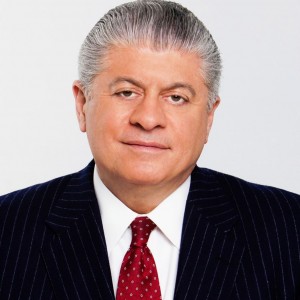“No doctrine involving more pernicious consequences was ever invented by the wit of man than that any of [the Constitution’s] provisions can be suspended during any of the great exigencies of government.”
— Ex Parte Milligan, Supreme Court of the United States, 1866.
President Donald Trump has recently imposed a national sales tax on nearly all goods emanating from outside the United States to be paid by the ultimate consumer. Thus, if you buy a Ford pickup truck in the U.S., because it contains parts from Canada, Mexico and South Korea, according to The Wall Street Journal, it will cost you an additional $3,000. The $3,000 was initially paid piecemeal by the foreign exporters of the parts to the U.S. Treasury as a condition for the parts entering the United States. When you pay the local Ford dealer, you are actually reimbursing the foreign exporters.
The same is the case for a toaster made in China. Last week, that toaster cost $25. Next week, it will cost $37.50, or, if Trump follows through on a threat made earlier this week, $50. If your budget for the toaster is $25 to $30, you probably won’t spend $50. If you do, you will be reimbursing the Chinese exporter for his 100% tariff that he has already paid to the Treasury. Or, you will search in vain for an American-made toaster.
These sales taxes were added to the price of the Ford Pickup and the toaster not by an act of Congress, but by an act of the president alone. Can the president alone impose taxes on the American people? The short answer is: NO.
Here is the backstory.
In 1977, Congress enacted the International Economic Emergency Powers Act. This law permitted the president to impose tariffs on goods emanating from outside the U.S. in the case of an economic emergency. The statute defined an emergency as a sudden and unexpected event that adversely affects U.S. national security or economic prosperity.
Cognizant of the “emergency” trigger for the exercise of this unique power, the Trump administration initially offered that the introduction of fentanyl into the U.S. by foreign persons was the emergency. When advisers related to the president that the tariffs he contemplated would affect dozens of foreign countries producing hundreds of goods and services as to which there is no connection to fentanyl, the administration claimed the U.S. imbalance of trade as the emergency trigger.
The imbalance of trade means that persons and businesses in the U.S. spend more money on the goods and services that they buy from foreign sellers than they receive from sales of goods and services to foreign buyers. The executive order signed last week by Trump reflects that the U.S. has experienced this trade imbalance since 1934! Thus, by definition, it is not a sudden or unexpected event, and thus, it is not an emergency as defined in the statute.
No emergency means there is no lawful basis for Trump’s imposition of the tariffs.
There is also no constitutional basis for the statute. The Constitution reposes the power to tax exclusively into the hands of Congress. The Framers were so determined to keep that power there that they even required in the Constitution that all taxes emanate in the House of Representatives. Since this Trump sales tax emanated in the White House, it violates the Constitution.
Can Congress give the power to tax to the president? In a word: NO.
Congress cannot give away any of its core functions — among which is the power to tax. James Madison, who was the scrivener at the Constitutional Convention in 1787 and, during his lifetime, its most authentic interpreter of what the Framers’ original understanding of the document was, argued that the separation of powers — the Congress sets taxes, the president collects them — was written to preserve personal freedom by preventing the accumulation of too much power in any one of the three branches.
His argument was followed 200 years later by the late Justice Antonin Scalia, who wrote that delegated core powers cannot be redelegated to another branch.
This is an example of why we have a life-tenured and unelected judiciary. It is the anti-democratic branch of government. Its duty is not to reflect the will of the voters, rather to protect their lives, liberties and properties from the popular branches when either of them exceeds the powers granted by the Constitution or tampers with its structure.
Congress can no more allow the president to impose taxes than he can allow the judiciary to command troops in wartime.
But here we are with a pliant Congress, one of whose predecessors gave away limited taxing power to the president, and a president heedless of the Constitution he has sworn to uphold and the federal laws he has sworn to enforce. Can Congress impose tariffs? Of course it can, and it did so as the primary revenue source for the federal government until the War Between the States.
The constitutional trouble comes, however, when presidents argue that it’s time to employ the emergency doctrine. As the Supreme Court has made clear, there is no emergency doctrine. But presidents from John Adams to Donald Trump have argued that “emergency” enhances their powers, and they have argued that they can determine when an emergency arises. This is a trick used by tyrants throughout history.
Congress has defined emergency. It is the duty of the Congress to rein in its wrongful use. This is not a pro-Trump or anti-Trump issue; nor is it a Republican or Democratic issue. It is one of fidelity to the supreme law of the land and to the laws written pursuant to it.
For without that fidelity, we have no democracy, just rule by the contemporary whims of whomever is in the government. One of the complaints that the colonists had about the British Parliament was taxation without representation. Good God, are we back to that?
To learn more about Judge Andrew Napolitano, visit https://JudgeNap.com.




